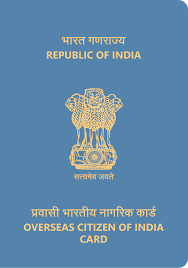Understanding Overseas Citizenship of India

What is Overseas Citizenship of India?
Overseas Citizenship of India (OCI) is a scheme introduced by the Government of India in 2005. It offers a form of dual citizenship to overseas Indians, allowing them to live and work in India indefinitely. The program is particularly significant for people of Indian origin living abroad, enabling them to maintain a connection with their roots while enjoying numerous benefits under Indian law.
Significance of OCI
OCI holders are granted multiple entry, multipurpose lifelong visas to visit India. They are also exempted from registering with the Foreigners Regional Registration Office (FRRO) for any length of stay in India. This status is crucial for many Indians who may seek to reconnect with their heritage or invest in the Indian economy.
Eligibility Criteria
To apply for OCI, one must have held Indian citizenship in the past or must have been born to parents who are Indian citizens. Additionally, individuals whose grandparents were Indian citizens are also eligible. It’s essential to note that if an Indian citizen renounces their citizenship, they can still apply for the OCI card.
Recent Developments
The Government of India has continuously updated and improved the OCI scheme. In September 2023, the Ministry of Home Affairs announced the inclusion of additional benefits for OCI cardholders. These include enhanced rights to purchase agricultural land and easier access to Indian financial markets. Such steps are aimed at encouraging the Indian diaspora to engage more actively with their homeland.
Conclusion
The Overseas Citizenship of India is more than just a card; it is a vital link for millions of Indians living abroad who wish to maintain ties with India. With ongoing enhancements to the OCI framework, the Indian government is likely to see increased participation from its overseas community, further strengthening the global Indian identity. For those eligible, applying for OCI could be a strategic move that opens numerous doors between their homeland and their present residence.









